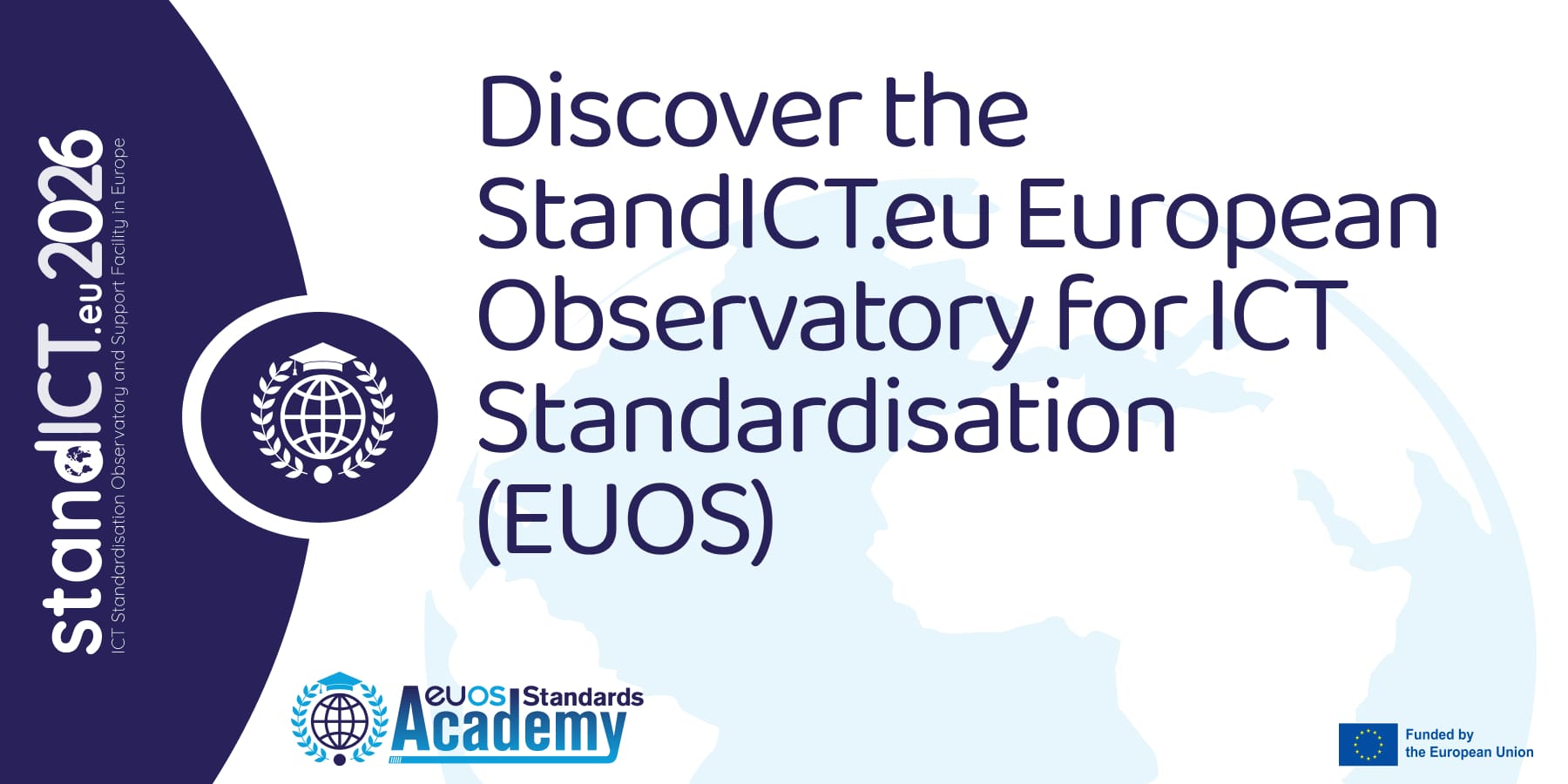
Standards play a crucial yet often unnoticed role in our daily lives, forming the foundation for future technological innovation, societal progress, and environmental sustainability. They ensure our advancements are safe, efficient, and responsible.
In our fast-paced world, especially within the Information and Communication Technology (ICT) sector, keeping abreast of new standards is more essential than ever.
In this framework, the StandICT.eu project, now in its third consecutive edition, was born back in 2018. StandICT.eu is an EU Coordination and Support Action project funded under Horizon Europe - with the central goal to ensure a neutral, reputable, pragmatic and fair approach to support European and Associated states presence in the international ICT standardisation scene. To achieve this goal, StandICT.eu has produced various assets and has coordinated activities to provide funding to European experts interested in working in international Standards Development Organisations (SDOs).
Among the key assets developed by the project, we find the European Observatory for ICT Standardisation (EUOS). It is an interactive platform dedicated to providing our community of ICT experts an accurate coverage of relevant and updated ICT Standards.
Launched by StandICT.eu in 2021 as a brand new asset, the EUOS has since then thoroughly monitored the global standardisation landscape, providing a comprehensive and accurate coverage of the most important ICT standards, Working Groups (WGs) and Technical Committees (TCs) that affect the key ICT topics of the Digital Single Market and the EU ICT Rolling Plan for Standardisation.
The EUOS is made of different components, namely:
- Discussion Groups: a networking space where registered users can talk with other ICT experts about ICT topics, create and edit documents, share knowledge and events.
- Standards Training Academy: a platform to create awareness about ICT standardisation both for young individuals and High Education Institutes. It’s a Repository of readily accessible and easily discoverable training and education materials about ICT standardisation covering different experience levels: Beginner, Intermediate, and Advanced. The Academy has been recently renovated as you can read here.
- Standards Landscape and Gap Analysis reports: documents providing a list of current standards across various ICT domains, directly produced by experts working in our EUOS Technical Working Groups (TWGs).
- Standards Repository: an ever-evolving platform that supports users by offering a direct access to a big amount of ICT standards, available at external sources, including the most prominent International and European Standards Development Organisations (SDOs). Its aim is to provide up-to-date information and links documents on standards that cover the most important ICT areas. It is fed and enriched thanks to the information collected in the dedicated standards landscape analysis reports.
In the latest StandICT.eu 2026 edition, the Repository has been expanded both in terms of the number of standards and the topics covered. The transition between the different editions underlines a continuous development path that is in line with changes of the global technological landscape and the needs of the European market.
To date, more than 2,500 ICT standards and over 300 Working Groups (working on standards which are still under development) have been mapped. Compared to the previous edition, more than 800 Standards have been added, focusing on topics such as Citiverse (350), Ontologies (72), IoT and edge computing (375) and Data Centre (26).
The Repository contains standards from numerous SDOs, European SDOs and other standardisation initiatives such as 3GPP, ASTM, ATIS, CEN/CENELEC, CSA, DIF, DMTF, ETSI, GICTF, GS1, HL7, IEC, IEEE, IETF, iiRDS, INRAE, ISO, ITU, MPAI, NIST, OASIS, OGC, OMA, OMG, W3C and many more. Each of these collects dozens of views each month, thousands overall since the start of the project..
The goals for the future remain consistent with those pursued until now: expanding the Repository and the other EUOS components and keeping these sources up-to-date, continuing to focus on the main areas of ICT, in line with the 'Rolling Plan for ICT Standardisation' defined by the European Commission.
Would you like to know more? Explore the Repository!